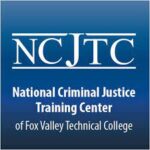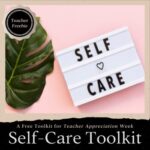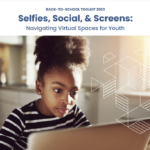Physical & Mental Health
- Depression/Suicide (35)
- Emotional Intelligence (13)
- Health Care Resources for Youth (35)
- Mental Health (82)
- Mindfulness (29)
- Nutrition (52)
- Obesity Prevention (35)
- Resiliency (14)
- Social-Emotional Learning (SEL) (77)
- Trauma-Informed Care (48)
In commemoration of Bebe Moore Campbell National Minority Mental Health Awareness Month, Mental Health America (MHA) sponsored the creation of the 2024 BIPOC Mental Health Toolkit.
This toolkit offers fact sheets, outreach ideas, sample newsletters, social media tools, and more to better support youth in our communities.
In commemoration of Bebe Moore Campbell National Minority Mental Health Awareness Month, Mental Health America (MHA) sponsored the creation of the 2024 BIPOC Mental Health Toolkit.
This toolkit offers fact sheets, outreach ideas, sample newsletters, social media tools, and more to better support youth in our communities.
Safety on college campuses are essential to student well-being, particularly for students who identify as LGBTQ+. This resource, provided by College Educated, is designed to support students, parents, teachers, and campus professionals with a guide to navigate challenges faced while participating on a college campus.
The hope of this guide is to provide a resource that supports the LGBTQ student, parents, teachers and campus professionals to increase understanding, provide resources and education and hopefully help make connections that will keep an LGBTQ in college and successful as they transition to the workplace.
Free SEL curriculum and lesson plans from Houghton Mifflin Harcourt – The following SEL lesson plans for students in elementary school through high school include writing prompts, downloadable posters, worksheets, reading lists, and more. With these activities and social and emotional lessons, you can help students build the skills needed for success in and out of the classroom.
April is nationally recognized as Child Abuse Prevention Month. Help prevent child abuse by downloading the contents below and sharing them with your children.
This Child Abuse Prevention Month Toolkit features printouts, worksheets for parent and child, videos, a Powerpoint presentation, hotlines to call, signage, and more.
April is National Child Abuse Prevention Month, a time to recognize the efforts of those who support children and strengthen families, and uncover the ways we can all play a part in keeping children safe and unharmed. We invite you to leverage the information, tools and resources we put together in this collection.
The School of Kindness offers Lesson Plans and Activities that teach children about the importance of kindness, the science of kindness, and the impact it has on our physical and mental health. They are designed by teachers, for teachers, and support many of the aims and objectives of the new statutory PSHE curriculum for relationships and health education in primary schools.
This is a wonderful collection of 1,000+ free resources to help you teach kindness to your students. Choose from free printable coloring pages, kindness crafts, games, SEL worksheets, kindness math activities, and more.
Teachers and educators can use this free self-care tool kit to prioritize themselves. This self-care toolkit includes a stress relief graphic organizer, “When did I last…” tracker, a visualization graphic organizer, though process bullet journal template, top 10 graphic organizer, and a 30 day self-care challenge.
Safe spaces is a free online training designed to help early care providers, TK-12 educators and other school personnel recognize and respond to trauma and stress in children.
Anyone who works with children is invited to take the free, online professional learning. This includes early care providers, educators and school personnel, including school nurses, librarians, administrative support, school bus drivers and yard duty support. Each module is about two hours and is filled with case examples, videos, strategies and practices. Select the module(s) that best fit your professional needs:
Module 1 – Ages 0-5
Module 2 – Ages 5-11
Module 3 – Ages 12-18
As we step into another school year, it remains crucial to recognize the mental health challenges our nation’s school-age children face. Going back to school can be an exciting time filled with new friends, new social events, and new extracurriculars. But returning to school also means re-entering the virtual spaces that exist in tandem with the classroom – which can be both helpful and harmful. For young people, online spaces can bring with them feelings of exclusion, body image concerns, misinformation, cyberbullying, harassment, and violent content – all of which have an impact on mental health.
Mental Health America (MHA) is dedicated to providing quality resources that can be used to facilitate these kinds of conversations. Through this toolkit, we aim to equip you with the social media knowledge you need to support the young people in your life, whether that is as a parent, caregiver, teacher, coach, counselor, or school administrator.
RULER in Out-of-School Time (OST) is an approach to social and emotional learning that is adapted from The Yale Center for Emotional Intelligence’s evidence-based approach known as RULER. RULER in OST strengthens the emotional intelligence skills of staff and young people participating in afterschool programs, camps, clubs, sports, or other spaces outside the school day.
RULER in OST consists of 7 staff development videos plus reflections and activities for each. The series teaches the skills and tools of emotional intelligence and other topics relevant to working with youth.
We understand training staff and implementing new approaches in OST settings can be difficult. Thus, RULER in OST implementation is flexible. Content can be completed independently by staff at their own pace or integrated into staff meetings over time.







